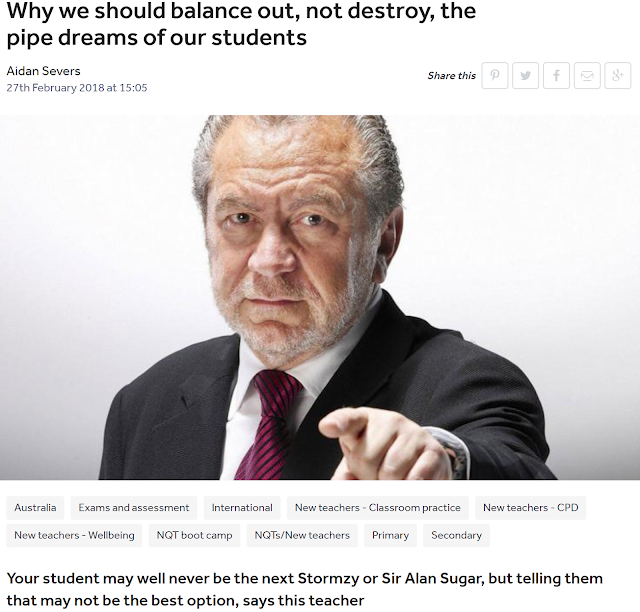To my brilliant year six teachers,
Thank you and well done for all your incredibly hard work this year. I could not have asked for more commitment and dedication to the children of our school. They have received top-notch teaching and a highly-tailored curriculum this year - you have thought of each and every one, assessing their needs and then working on them meticulously to help them to make, in so many cases, very rapid progress.
You have had the highest of expectations for all the children in your care and have not let anyone get away with anything sub-standard. At the time, that might make you feel like an ogre, but, it is absolutely necessary in ensuring that the children have the best possible chance of present and future success.
It has been so encouraging to see how you have worked together, trying out new things and analysing their success. You have really made every effort to be excellent teachers - and it has paid off. Your self-reflectiveness and your desire to always better yourself has been an absolute gift, both to me as your leader and to the children.
And so, whatever the 2017 KS2 tests results say, I stand with you and support you. Should they be good, we will celebrate. Should they be disappointing, we will look for and celebrate the successes that are sure to be there. And we will optimistically plan for the future, resolutely seeking ways to better our practice from this year.
Yes, I am now speaking about 'we' and not 'you' because, although your personal commitment is independently commendable, we are a team and we did this together. This is not a case of 'you', it is 'us' - that 'us' includes all the school's leaders and every other member of staff who has touched the lives of our outgoing year sixes. We did this together and we will stand together.
Thank you though for all the times you felt you were on your own, but you kept on going anyway - you truly do put the children at the centre of all you do.
When those results come in, think not of them as the only measure of each child's achievements, no matter how well they have done. They do not measure all the things that you have told me, and that I have seen, throughout the year: the small wins and the big successes. That child who was working on year two objectives who can now successfully demonstrate understanding of many year six objectives. That child who only started with us this year, having not been in school for a good while. That child who has discovered a love of reading, of writing, of maths, of history, of Shakespeare. That child who now speaks up in class. All those children who are raring to go to secondary school, confident that they are learners and that they will be successful as long as they hold high expectations for themselves. You did that.
They might not thank you for it. But I do. And in years to come they will look back and remember all that you have done and they will wish that they had thanked you.
But I know you don't do it for the thanks. You do it because you care. There is not enough thanks to cover that.

















